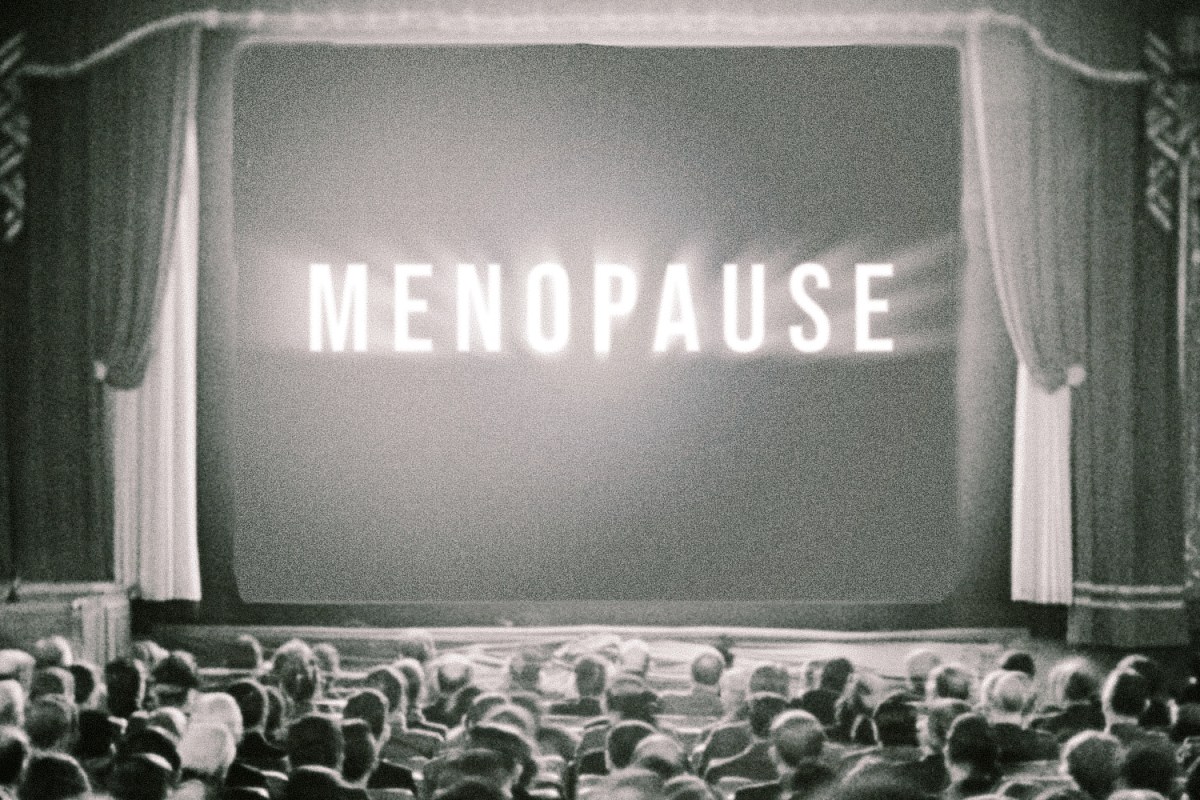“It’s remarkable how little men know about menopause,” says Dee Murray. “And that’s strange — because it’s likely to have a far-reaching effect on them, and not just for their romantic relationships, but their relationships with their daughters and colleagues. It’s crucial.”
That’s why Murray, the France-based founder of campaign organization Menopause Experts Group, has created the first training program designed specifically to make men more aware of a still somewhat mysterious and stigmatized biological phenomena which almost every woman will go through.
And, lo, it turns out menopause — put simply, the end of a 12-month-long spell during which a woman has had no period, and won’t have again, marking the end of her child-bearing years — is not all about hot flashes, that butt of many a poor joke. It’s not even the most relevant stage of the whole process: that would be what’s called peri-menopause, or the prior, symptomatic phase that may last up to a decade, typically starting around the age of 50 but which can start while a woman is still well within her forties.
These often misdiagnosed symptoms — running the gamut from itchy skin to a reduction in night vision, from joint pain to tingling extremities, from brain fog and memory loss to depression, a loss of libido, vaginal atrophy and, yes, hot flashes — are all hormonal, connected to a loss of estrogen.
“For a long time women’s health has generally been spoken about only within women’s circles, and I think while women tend to be nurturers, and so know about men’s health, the reverse has not been the case. Men tend to be fixers and get frustrated when there’s no clear solution,” reckons Murray, who suggests that the same furtiveness that long surrounded the topic of menstruation, and before that even pregnancy, still blights open conversation about menopause.
“We can’t blame men for not understanding menopause. It’s surprising how many women I speak to don’t either, how many younger women are unsympathetic towards those in middle age. It’s one of those messy bits of female biology that society prefers to hide away, and especially from men,” she adds.
Indeed, that menopause is still taboo is a product, she argues, not only of ageism, but in part also of vanity: women in a lookist society often refuse to admit they’re peri-menopausal, a particularly challenging thing to accept for some, it’s argued, when their daughters are often simultaneously at the most vital stage in a human lifespan. The impact of this on couples getting along day to day, on their parenting, on their sex life, can be huge. A shared understanding of what’s going on, and the options for response, could save a marriage.
“Men need to understand just how complex, physically but also psychologically, peri-menopause can be for women, and the more info there is about it, targeted at them, the easier it is for them to offer support, to help take away the pressure, to not misunderstand their partner’s mood or behavior,” says Murray, who has also provided menopause training to the diverse likes of the Finastra financial services giant and London’s Metropolitan Police force. “The situation is improving. I’ve been at board meetings with a table of men and when you tell them you’re a menopause educator you suddenly find you’re holding court — because they all know that they need to know.”
There’s a broader pressure to know, too. And it merits a response. Figures internationally are hard to find, but in the U.K. at least, employment tribunals citing menopause have quadrupled since 2018 — a catalogue of bosses having made light of the symptoms, of said symptoms effectively disabling employees. In most countries the law lags far behind a growing awareness of menopause’s potential impact.
“The fact is that the understanding of menopause has an impact on society at large,” argues Dr. Helena McKeown, a menopause specialist and ex-chief officer of the British Medical Association. “It has a big impact on productivity and staff retention. It’s a massive reason for women to leave the workforce, for example. Women don’t often experience all of the symptoms of peri-menopause, but sometimes just enough to stop them working efficiently, which leads to self-doubt, Imposter Syndrome, and so on, and yet employers don’t typically talk about this or address it. That’s no surprise when there’s this unconscious bias against it, and that’s not just among the half of the population that won’t experience it.”
Certainly, McKeown adds, look at the big picture and the discourse around menopause is political, as well. It’s one of a number of women’s health issues not well researched because there are so many variables in different women’s experience of it. “When many of us now live well into our 80s, menopause is something that’s going to happen to a lot of women a little more than half way through their life,” she says. “In terms of its relevance then to our working and home lives, that makes the menopause a societal issue as well, not just a women’s issue.”
It’s only in recent years that men have been encouraged to become much more involved in pregnancy, through the likes of attending antenatal classes and, in some countries at least, winning a right to paid paternity leave. So there’s catch-up to do with men’s understanding of and regard for the effects of menopause. What may shift the balance is, perhaps, a more comprehensive visibility for the changes of middle age, beyond the cliché of the mid-life crisis. As McKeown notes, “talk to some men about menopause and their first reaction is still ‘Well, men experience this too…””
In other words, maybe men would be more appreciative of the impact of menopause if it was framed in the context of their own experience: the typically far less extreme, less commonplace, but even less well-understood andropause, when a drop in testosterone levels can bring similar adverse effects to the male mind and body. But lesson one of understanding menopause is, well, that it’s not all about you.
Readers can take the menopause training online for free at menopauseexpertstraining.com
Whether you’re looking to get into shape, or just get out of a funk, The Charge has got you covered. Sign up for our new wellness newsletter today.
























